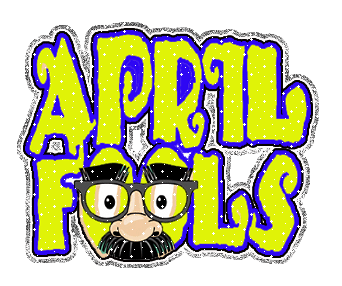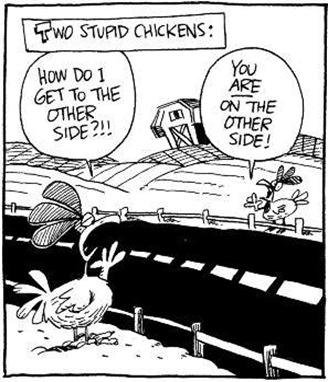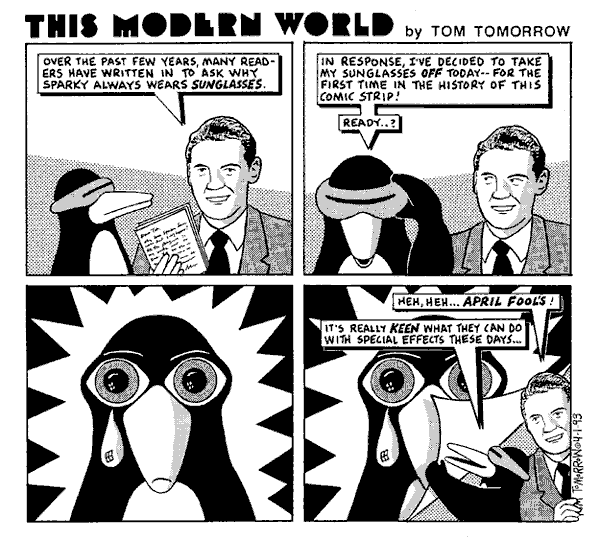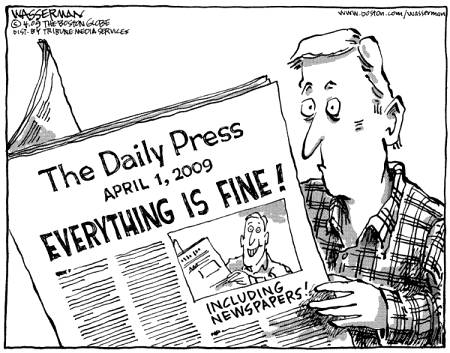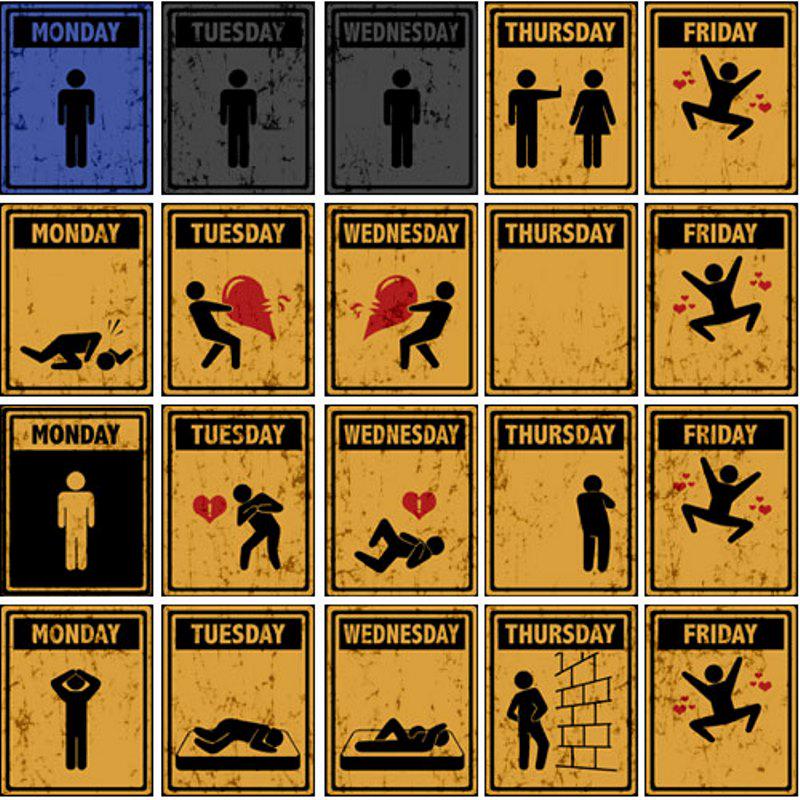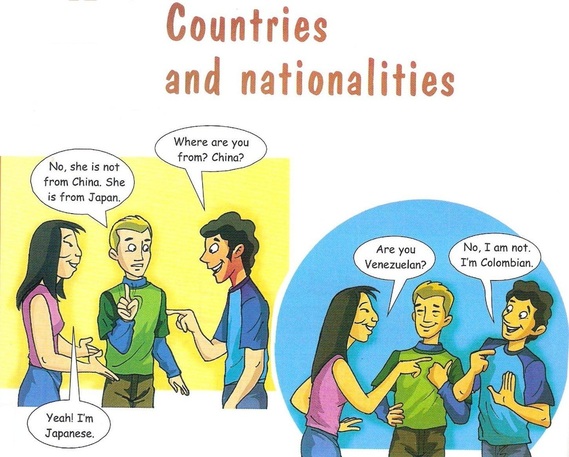Monday, March 31, 2014
Saturday, March 29, 2014
Laura Makes a Decision
Laura has a problem. But she seems to have made a decision. Let's know more about it by the hand of some students of 3rd year of ESO...
Friday, March 28, 2014
April Fools' Day
Originally, New Year's Day was April 1. Later, when the Church changed the calendar, they also changed the date for January 1. However, some people continued using April 1 as the date of the New Year. These people were referred to as "April Fools".

In the early Roman calendar, April 1 was the first day of spring, the spring equinox, and before 154 B.C. it was New Years Day. Many celebrations of many cultures observed this day as the coming of the renewal of the earth and life. There would be sacrifices and gifts given to the gods. When the Christians came into power in the Roman Empire, they created a celebration we call Easter that replaced the spring rituals.
 Although the most common belief is that the observance of April Fool's Day began in France,there really wasn't a "first April Fool's Day" that can be pinpointed on the calendar. Some believe it sort of evolved simultaneously in several cultures at the same time, from celebrations involving the first day of spring.
Although the most common belief is that the observance of April Fool's Day began in France,there really wasn't a "first April Fool's Day" that can be pinpointed on the calendar. Some believe it sort of evolved simultaneously in several cultures at the same time, from celebrations involving the first day of spring.
French children fool their friends by taping a paper fish to their friends' backs. When the "young fool" discovers this trick, the prankster yells "Poisson d’Avril!" In England, tricks can be played only in the morning. If a trick is played on you, you are a "noodle". In Scotland you are called an "April Gowk" or cuckoo bird. It lasts for two days there. The second day in Scotland is called Taily Day and is dedicated to pranks involving the buttocks. The Scotts can be given credit for the "Kick Me." Americans play small tricks on friends and strangers alike on the first of April. One common trick on April Fool's Day is pointing down to a friend's shoe and saying, "Your shoelace is untied." If victim falls for the joke the prankster yells, "April Fool!"
Some examples of clever jokes:
- put food colouring in milk.
- go with a couple of friends, stand near some busy street corner – stare and point up at the sky. Watch the reactions of people around you!
- Draw funny eyebrows and moustache on someone's face while she/he is asleep.
- Tape a little walky-talky on your pet or hide it somewhere near where it is laying. Walk off to a safe distance where you can keep yourself hidden from others with the other piece. As soon as another family member tries to pick up or pat on the back of your pet, say in a gruff voice, "I hate you doing this to me." See them jump with fright and shock.
BBC Penguins Prank
An awesome BBC prank: film maker and writer Terry Jones discovers a colony of penguins, which are unlike any other penguins in the world: they can fly!!!
And if you wish more, here you have a behind the scenes look at how the BBC created the BBC iPlayer trail for April Fools' Day, featuring a colony of flying penguins:
Thursday, March 27, 2014
Days of the Week: Activities
 A bunch of sorted activities to review the vocabulary of the days of the week.
A bunch of sorted activities to review the vocabulary of the days of the week.- From English Exercises, crosswords, words search, unscrambling...
- Try a hangman from English-Hilfen.
- What about a crossword from English-Hilfen too?
- A listening game from ESL Games.
Months of the Year: Activities
A bunch of sorted activities to review the vocabulary of the months of the year.
- From English Exercises, crosswords, words search, unscrambling...
- Try a hangman from English-Hilfen.
- What about a crossword from English-Hilfen?
- A listening memory game from ESL Games.
Tuesday, March 25, 2014
Friday I'm in Love
To review the days of the week, let's have an eye to a song by The Cure: Friday, I'm in Love.
First of all, let's watch the video:
Secondly, the lyrics:
I don't care if Monday's blue
Tuesday's grey and Wednesday too
Thursday I don't care about you
It's Friday I'm in love
Monday you can fall apart
Tuesday Wednesday break my heart
Thursday doesn't even start
It's Friday I'm in love
Saturday wait
And Sunday always comes too late
But Friday never hesitate...
I don't care if Mondays black
Tuesday Wednesday heart attack
Thursday never looking back
It's Friday I'm in love
Monday you can hold your head
Tuesday Wednesday stay in bed
Or Thursday watch the walls instead
It's Friday I'm in love
Saturday wait
And Sunday always comes too late
But Friday never hesitate...
Dressed up to the eyes
It's a wonderful surprise
To see your shoes and your spirits rise
Throwing out your frown
And just smiling at the sound
And as sleek as a shriek
Spinning round and round
Always take a big bite
It's such a gorgeous sight
To see you eat in the middle of the night
You can never get enough
Enough of this stuff
It's FridayI'm in love.
Tuesday's grey and Wednesday too
Thursday I don't care about you
It's Friday I'm in love
Monday you can fall apart
Tuesday Wednesday break my heart
Thursday doesn't even start
It's Friday I'm in love
Saturday wait
And Sunday always comes too late
But Friday never hesitate...
I don't care if Mondays black
Tuesday Wednesday heart attack
Thursday never looking back
It's Friday I'm in love
Monday you can hold your head
Tuesday Wednesday stay in bed
Or Thursday watch the walls instead
It's Friday I'm in love
Saturday wait
And Sunday always comes too late
But Friday never hesitate...
Dressed up to the eyes
It's a wonderful surprise
To see your shoes and your spirits rise
Throwing out your frown
And just smiling at the sound
And as sleek as a shriek
Spinning round and round
Always take a big bite
It's such a gorgeous sight
To see you eat in the middle of the night
You can never get enough
Enough of this stuff
It's FridayI'm in love.
And finally, a visual way to understand the words:
You're so Vain: Verbs in the Past

Monday, March 24, 2014
The Solar System

Sunday, March 23, 2014
Places in Town
- Listening activities at Lets Have fun with English
- Exercises by English Exercises
- Lots of activities by AgendaWeb
Talking About the Future
 It is possible expressing the future time in English in many different ways:
It is possible expressing the future time in English in many different ways:- Will
- Going to
- Present Continuous
WILL
| ||
I
you
he / she / it
we
they
|
will ('ll)
will not (won't)
|
play
|
- I'm going to see him tomorrow.
- They're going to go to London next month.
- We're going to study English this afternoon.
Subject
|
Verb To be
|
Going to
|
Infinitive
|
I
|
am
| going to |
dance
|
He / She / It
|
is
|
read
| |
We / You / They
|
are
|
plan
|
Subject
|
Verb To be + not
|
Going to
|
Infinitive
|
I
|
am not
| going to |
sleep
|
He / She / It
|
is not (isn’t)
|
cook
| |
We / You / They
|
are not (aren’t)
|
jump
|
Verb To Be
|
Subject
|
Going to
|
Infinitive
| |
What
|
am not
|
I
| going to |
do?
|
Where
|
is not (isn’t)
|
he / she / it
|
eat?
| |
are not (aren’t)
|
we / you / they
|
fish?
|
This future plan doesn’t have to be for the near future. In this case, we use the present continuous form of the verb:
Activivites about future plans with going to:
- Englisch-Hilfen: exercises 1, 2 & 3.
- English Grammar Secrets: exercises 1, 2, 3 & 4.
- English 3D: complete the dialogue.
- ESL Gold: audio exercise.
Under the Sea
Underwater is an adjective that means located, used, done, or happening below the surface of water.
Let's learn more about underwater...
The seaweed is always
greener
In somebody else's lake You dream about going up there But that is a big mistake Just look at the world around you Right here on the ocean floor Such wonderful things surround you What more is you lookin' for? Under the sea Under the sea Darling it's better Down where it's wetter Take it from me Up on the shore they work all day Out in the sun they slave away While we devotin' Full time to floatin' Under the sea Down here all the fish is happy As off through the waves they roll The fish on the land ain't happy They sad 'cause they in their bowl But fish in the bowl is lucky They in for a worser fate One day when the boss get hungry Guess who's gon' be on the plate Under the sea Under the sea Nobody beat us Fry us and eat us In fricassee We what the land folks loves to cook Under the sea we off the hook We got no troubles Life is the bubbles Under the sea Under the sea Since life is sweet here We got the beat here Naturally Even the sturgeon an' the ray They get the urge 'n' start to play We got the spirit You got to hear it Under the sea |
The newt play the flute
The carp play the harp The plaice play the bass And they soundin' sharp The bass play the brass The chub play the tub The fluke is the duke of soul (Yeah) The ray he can play The lings on the strings The trout rockin' out The blackfish she sings The smelt and the sprat They know where it's at An' oh that blowfish blow Under the sea Under the sea When the sardine Begin the beguine It's music to me What do they got? A lot of sand We got a hot crustacean band Each little clam here know how to jam here Under the sea Each little slug here Cuttin' a rug here Under the sea Each little snail here Know how to wail here That's why it's hotter Under the water Ya we in luck here Down in the muck here Under the sea |
Finally, you can do some activities at Learning English Online:
Night and Day
 There are 24 hours in a day. The day is divided into day and night. Daytime is from sunrise (approximately at 6am) to sunset(approximately at 6pm). Night-time is from sunset to sunrise.
There are 24 hours in a day. The day is divided into day and night. Daytime is from sunrise (approximately at 6am) to sunset(approximately at 6pm). Night-time is from sunset to sunrise.
Every day starts precisely at midnight. AM (Ante-Meridiem = before noon) starts just after midnight. PM (Post-Meridiem=after noon) starts just after midday. This means that 12am and 12pm have no meaning.
This diagram shows the cycle of a 24-hour day and the words we use to describe its parts. The day starts at midnight.
To refer to these parts of the day, we use different prepositions:
In the morning.
|
6,00 AM – 12,00 PM
|
In the afternoon.
|
12,00 PM – 6,00 PM
|
In the evening.
|
6,00 PM – 12,00 AM
|
At night.
|
12,00 AM – 6,00 AM
|
Daily Routines
A video clip to review daily routines:
In this other, you will review daily routines while practising the present simple tense and the time:
In this other, you will review daily routines while practising the present simple tense and the time:
Subscribe to:
Comments (Atom)

